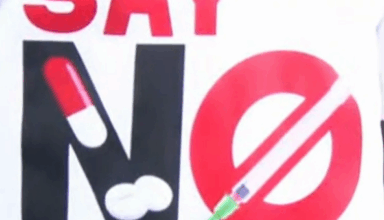The KGL/GJA/Fourth Estate PR drama…who is the worst loser?


The recent dynamic between KGL, the Ghana Journalists Association, and The Fourth Estate is a revealing case study in crisis communication, institutional influence, and the delicate balance between media ethics and financial survival. Each actor came to the moment with different interests, and each has gained something but also risked something significant. The question is not simply who won or lost in the short term, but what this means for long-term credibility, public trust, and the role of the media in democratic accountability.
KGL demonstrated a sophisticated understanding of how public perception can be shaped not only by messaging but by association. Choosing to headline-sponsor the GJA Awards at a moment when their reputation was under the spotlight was an intentional move to reposition themselves in the national conversation. The event provided an opportunity to wrap the company in a cloak of legitimacy, surrounded by respected institutions—the presence of all three arms of government, the Asantehene, and leaders of national bodies did not just create prestige; it symbolised acceptance and endorsement. It shifted the narrative from scrutiny to celebration.
The Chairman’s messaging, which emphasised the need to support and encourage locally built companies rather than tearing them down, tapped into patriotic sentiment and economic nationalism. It reframed the story from allegations and investigations to one of Ghanaian enterprise and national pride. Throughout the two-hour live broadcast, the constant visibility of the brand on-stage mentions, branding placement, media commentary, and the prominence of the personality behind the business reinforced that narrative. Beyond the night of the event, the benefits will continue through newspaper coverage, online reports, broadcast discussions, and social media circulation in the days and weeks that follow.
However, the central question remains whether such a well-executed PR moment is strong enough to counterbalance the concerns raised by The Fourth Estate’s investigative reporting. A well-produced public performance does not erase unresolved questions. Should The Fourth Estate’s legal pursuit succeed, KGL’s restored image may not only be shaken, but it may be interpreted as strategic image laundering rather than genuine public engagement. The company has won a temporary reputational reprieve, but the long-term outcome depends not on image but on facts, accountability, and legal findings.
The Ghana Journalists Association emerges as another significant beneficiary. Hosting a high-profile national event of such magnitude comes at great cost, and partnering with a sponsor willing to fund it ensured the association’s ability to deliver a grand and successful ceremony. The GJA sold access to its platform at a moment when KGL needed to recast its public image. In practical terms, this was a mutually beneficial transaction: the association gained financial support, while KGL gained cultural and institutional proximity to the media.
But the ethical complications cannot be ignored. The GJA stands as the symbolic guardian of journalistic integrity. When the body that represents journalists becomes closely aligned with a company under active investigative scrutiny, questions arise about independence, neutrality, and the association’s responsibility to protect the credibility of the profession. Even if the decision was strategic, rational, or necessary, the perception that journalism can be influenced or softened by sponsorship threatens the very trust journalism relies on.
The Fourth Estate made a decision rooted in principle. Withdrawing from the awards was necessary to avoid conflict of interest and to maintain integrity in its watchdog role. That choice preserves its credibility in the eyes of audiences who expect independence and courage in investigative work. Yet, their absence did not hinder the success of the event, which proceeded with grandeur and widespread participation. This reality points to a deeper concern: investigative journalism relies on a broader media ecosystem to sustain pressure, visibility, and scrutiny. If much of that ecosystem publicly aligns itself, symbolically or materially, with the subject of the investigation, The Fourth Estate may find itself increasingly isolated. Winning public trust is one thing; sustaining industry support is another.
In the immediate sense, every party gained something. KGL gained visibility and temporary narrative relief. The GJA secured sponsorship and delivered a major national media event. The Fourth Estate upheld its ethical position and preserved its reputation for integrity. But beneath these individual gains lies a more troubling outcome: the possibility that the broader media landscape has shown itself susceptible to influence when financial or institutional incentives are involved. And if faith in the media’s independence erodes, the long-term casualty is public trust itself.
Public relations can reshape perception, buy time, and soften criticism, but it cannot resolve the underlying issues at stake when there are real questions of transparency, legality, and accountability. Ultimately, it is not the performance on stage that will determine the lasting outcome of this situation, but the evidence, the legal process, and the public’s memory. Time, not branding, will reveal who truly wins.
*******
Kweku Obeng-Adjei is a Communications/PR Consultant
DISCLAIMER: The Views, Comments, Opinions, Contributions and Statements made by Readers and Contributors on this platform do not necessarily represent the views or policy of Multimedia Group Limited.
DISCLAIMER: The Views, Comments, Opinions, Contributions and Statements made by Readers and Contributors on this platform do not necessarily represent the views or policy of Multimedia Group Limited.
Source link





